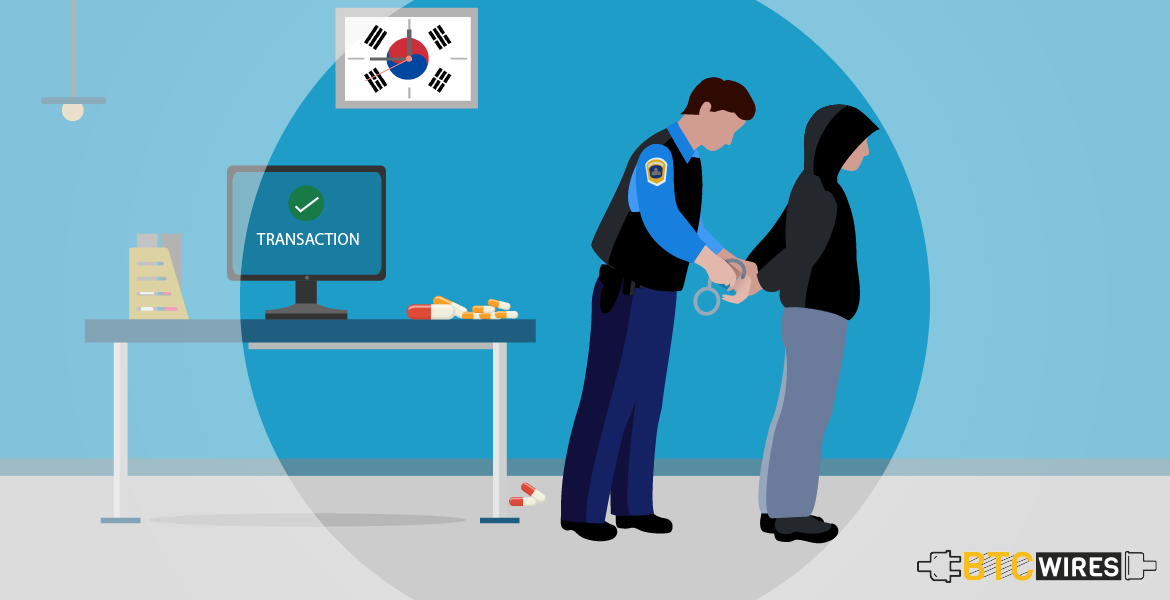The Seoul Central District Prosecutor’s Office released information regarding nine people

The Seoul Central District Prosecutor’s Office released information regarding nine people who were using cryptocurrency to sell narcotics on the dark web. The drug dealers reportedly used a cryptocurrency named “DarkCoin” and were growing Cannabis, and selling Hashish, LSD, and MDMA. All nine have been arrested.
The Korea Herald reported that the website that sold the drugs had quite a few “patrons”: almost 650 from March to November and almost 50 drug deals had gone down on the website.
The identity of the arrested, however, was not revealed as of the time this article was published. The officials did indicate though, that the surname of the person whom the website was registered to, was ‘Shin’.
The website has since been taken down and Korean media outlets are reporting this drug bust as the first time that a drug trafficking website operating on the dark web has been identified, the suspects apprehended and the website taken down. As such, this was a significant step forward for South Korea’s cybercrime law enforcement units, especially for a country that is experiencing such rapid technological growth that many still can’t keep up to it.
The authorities tracked down the illicit transactions after reviewing the suspect’s phones and computers. The dealers had allegedly managed to deal drugs worth over 8-10 million Korean Won ($7,117-$8,897).
Cybersecurity pioneer and founder of McAfee Associates John McAfee asserted in May that Bitcoin Private (BTCP) would eventually replace Monero as the preferred cryptocurrency fro illicit activities on the dark web due to its anonymous nature.
Earlier last year, a French national, Gal Vallerius was arrested in Atlanta after authorities managed to track his illicit narcotics deals on the dark web (where he was a well-known vendor) by analyzing Bitcoin transactions. On the dark web, he went by the pseudonym “OxyMonster” and sold on the infamous Dream Market.
Identified as a cocaine, oxycodone, LSD, and fentanyl vendor, he pled guilty to multiple charges after his arrest in 2017.
Authorities were able to trace bitcoin transactions to wallets controlled by Vallerius after he configured his Dream Market tip jar to go straight to his bitcoin addresses. Other vendors on the platform usually funnel their jars through the platform’s payment system that mixes bitcoin transactions to keep them anonymous.
It is evident that cybersecurity authorities across the world are ramping up their capabilities and starting to keep a closer look on cryptocurrency transactions, especially on the dark web. However, tracking someone on the dark web is an incredibly difficult task, but as soon as the dealers slipped up and made a mistake, the prosecutors swooped in.
This sends a clear message to dealers across the world using cryptocurrency to run their operations: the cost of making mistakes just got very high.
